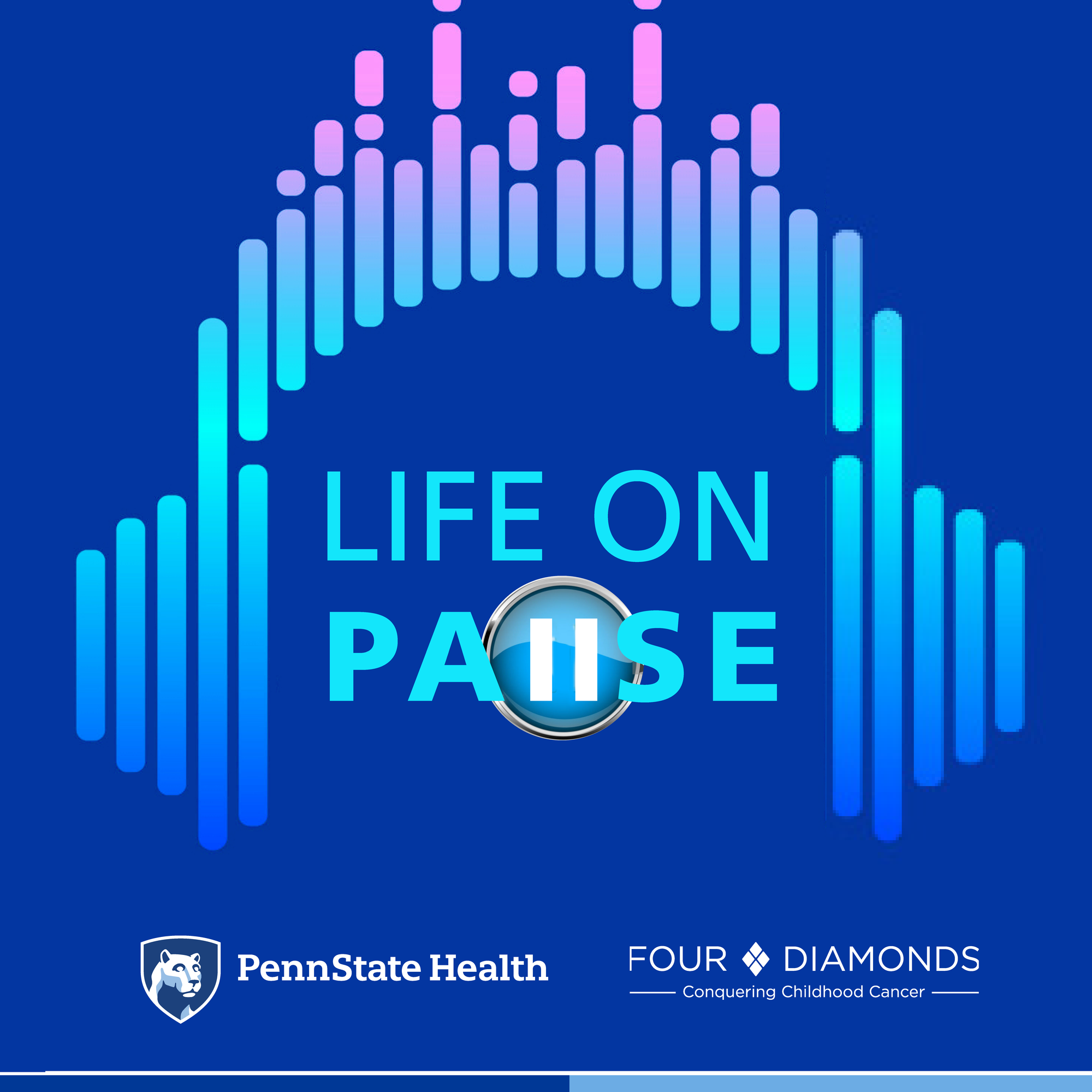Parenting During A Bone Marrow Transplant
Cancer can come in many forms and may involve different patient treatments. There is no typical cancer journey, and factors like interpersonal relationships, treatment methods, and individual coping strategies can influence a patient’s experience. Young adults with cancer may have to learn to address challenging situations like maintaining parental responsibilities through treatments and waiting for medical transplant opportunities.
Life on Pause is a podcast created by and for young adults living with cancer. Within this episode, host Bradley Lucas is joined by guest speaker Cameron Benjamin, a cancer patient battling myelodysplastic syndrome. Cameron has recently undergone a bone marrow transplant and has had to find ways to cope with his diagnosis and navigate treatments with his family. Together Bradley and Cameron discuss his journey with cancer, including how he communicated about his treatments with his young son, his ways of coping with his diagnosis, and his experience with receiving a bone marrow transplant.
Listen to Brady and Cameron discuss the cancer experience for patients with myelodysplastic syndrome:
Introducing Cameron (0:30)
Host Brady Lucas introduces Cameron Benjamin, a patient at Penn State Health Cancer Institute receiving treatment for myelodysplastic syndrome. Cameron shares a bit about his diagnosis, treatment milestones, and current situation having received a bone marrow transplant 51 days prior to this interview.
The Bone Marrow Transplant Process (2:13)
The process of receiving a transplant from a donor can be lengthy, and challenging, and Cameron experienced this first hand as a result of his diagnosis. Cameron walks listeners through the process of a bone marrow transplant procedure from the perspective of a patient with myelodysplastic syndrome.
Family Feelings and Cancer Treatment (7:31)
As a brother, husband and father, Cameron had to learn to navigate his cancer treatment while still maintaining healthy relationships with his family. Cameron describes how his family members reacted to his diagnosis, and how he helped them to understand his treatment process.
Parenting Young Children through the Treatment Process (12:36)
Children are intuitive, and it can be challenging to know how much to share with young children when battling health factors like cancer and making treatment plans. Cameron explains how he made the decision to include his son in care decisions and treatment planning in a way that would help him feel involved and stay informed.
Coping Methods for Children of Cancer Patients (16:53)
Coping methods and resources can offer much help to parents and child caregivers battling diseases like cancer. Cameron and his wife turned to the help of a child life specialist to explain the cancer diagnosis and disease to their son in a way that he would be able to comprehend.
Looking Toward the Future (20:13)
Cameron is making a conscious effort to maintain optimism when considering the future for the sake of his family and mental health. He shares a resource that has helped him update his loved ones on his medical journey, and explains how writing about his illness has helped him cope. He is currently writing a book about his experience with cancer, and he hopes to educate others on bone marrow transplants and expand the National Bone Marrow Registry and to help people of color and minorities.
How Donors Can Help Cancer Patients (24:55)
Bone marrow donors can make contributions to save the lives of individuals battling cancer. Cameron explains the process to become a bone marrow donor including submitting specimens for approval, and how the bone marrow registry connects donors to potential recipients.
Advice for Young Adults in Cancer Treatment (26:11)
To conclude this episode, Cameron shares the biggest piece of advice he would give to a young adult going through cancer treatment or battling cancer. He highlights the importance of mental health and seeking help from others when you need it. He also shares his biggest piece of advice as a parent with cancer, and how to address and demystify the cancer process for children.
